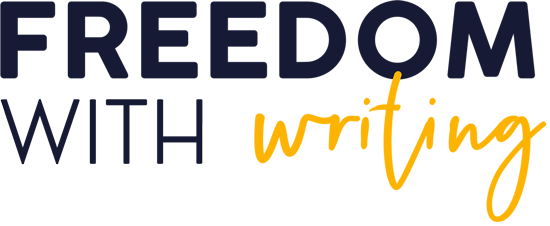Kamala Thiagarajan is a freelance journalist based in Madurai, South India, where she reports on environmental issues, global health, and science. Her work has been published in The New York Times, NPR, BBC, The Guardian, Hakai Magazine, Ensia, Al Jazeera, South China Morning Post, and many others. She converses here with Viney Kirpal, a personal and health writer.
VK: As an especially successful freelancer, what’s your rejection rate? And then what?
KT: It’s hard to say, because it depends on the outlet I’m pitching or the complexity of the story. Major news outlets can be very competitive. If you’re trying to sell a complex story, there are more challenges and you are bound to be rejected more, but on average, for every ten pitches that I send out, about 3-4 are rejected. No matter how experienced the writer is, you will find that rejections are still very much a part of our lives. I never take it personally and it doesn’t prevent me from pitching again. This is because I understand that it’s not always about the quality of writing or even about the idea you’re pitching. You can get rejected if the editor has recently covered the same issues in the past, if your timing is wrong (for instance, if they’re inundated with articles that keep them going for a while and are not seeking to assign new stories) or if there’s been a reshuffling of the editorial and the new editor’s wants and needs have changed.
The majority of my work now comes from editors who seek me out to assign stories. In recent years, this has emerged as a major source of my income, saving me the time and effort that goes into pitching. I think that for freelance writers, this would be the next step and a good place to be.
VK: I’m sure many envy you! So, what contributes to your success as a highly paid freelancer?
KT: As a writer, you have to understand that you have limited time and energy. It is critical to make the most of it. Anyone in business can keep their sales going even when they sleep, but we aren’t like that. Our potential to earn an income depends on the few productive hours we have to work with at the peak of our alertness. Such being the case, we need to make the most of that time. So I pitch only publications that have the budget to pay well and are fair in terms of the way they treat writers. That means no endless waiting for a pay cheque once you’re done writing. I also take on a mixed bag of assignments. There are news stories that need to be reported quickly, but also tend to get published quickly and pay well. These are like short bursts of energy, like a 100 m sprint. It’s intense, but over quickly. And then there are the long-form assignments that require immense patience, deeper research, more resolve to keep at it. These are like marathons. A journalist needs to engage with both to stay relevant.
Both kinds of stories require meticulous attention to detail, and sheer hard work in terms of research and getting back to editors and cooperating during the editing process. In general, this helps pave the way to getting published in bigger publications, and receiving higher pay.
VK: Hmm. How about some practical guidance from your own work to writers on how to find a story and an angle to write about?
Often, the best story ideas begin with simple questions. Why does this happen? What is going on? What’s so special about this? The process of finding answers can often lead you to the most intriguing people and stories.
So how do you find these answers? Take a deep interest in life around you. Don’t underestimate the power of simple, ordinary conversations. In other words, talk to people. Not just experts, but ordinary people, too. If I hadn’t struck up a conversation with friends and acquaintances, I would not have known about a rural school that was teaching honesty to its students in a unique way. I wouldn’t have been aware of how a group of 300 villages that were notorious for the cold-blooded murder of their infant girls because they considered them a liability were in the process of startling social reform. Or of how these local snake catchers were saving lives, both of people and the snakes that venture unwittingly into their homes. There are so many hidden stories around us. Some are so familiar that we may miss them altogether, such as India’s nostalgic love for typewriters and our undying passion for Enid Blyton, even though we suspect she was rather racist. To uncover the hidden stories, examine even familiar issues with a fresh perspective. Look for what’s new and what’s worth reporting.
VK: What an insightful answer! Could you also please share some tips on pitching and writing which are different from those given by editors?
KT: As writers, we tend to be fixated on our editors. What would they look for in a pitch? What would entice them or get them to read further? However, what we really should be focused on is not the editor of any publication, but the reader. Very few writers analyze the demographic profile of the reader and, for every publication, this is different and distinct. For instance, is the average reader of a publication that you’re contributing to college educated or high school educated? How diverse is that audience? Are they middle class or upper middle class? Does the publication’s geographical location matter (very often it does)? Before you pitch, have a deeper understanding of the publication’s audience and the kind of issues they would care about. Most editors have a great understanding of this demographic profile. They know exactly who their audience is, and this does reflect in their writer’s guidelines. So when you pitch a story that’s right for their audience, it stands to reason that it’s perfect for the editor too. Be more attuned to who your reader is and tailor your pitches accordingly.
VK: For most freelancers, their biggest fear is to find themselves out of work for long periods of time, especially during turbulent times in the industry. What do you advise to avoid that?
KT: It is a very real fear and one that I understand and relate to. When you aren’t employed full time by any organization, your secret to success lies in constantly generating ideas. But often enough, it can take its toll, physically and mentally. It’s hard to be an idea generating machine all the time. So what do you do?
In twenty years of freelancing, I’ve never been out of work for a single day. Here’s how I do it: 1) I set income goals and pitch obsessively until I meet them. 2) I pitch diverse publications and higher paying ones, so that I have some leeway in case there is a lull. 3) I follow the news cycle very closely. Understanding what makes the news, the difference between local and international news, and the kind of story that each outlet is looking for is critical because this will open the doors to working with diverse editors. As freelancers, remember that we’re shape shifters. Assessing the needs of different publications and catering to them effectively will allow us to gain invaluable experience and ensure that the work always keeps flowing. But by far, my biggest advice would be not to worry too much about it. Do whatever you can, but in the end, don’t be wracked with stress or doubt; just trust in yourself and believe that a good writer will always attract stories. It’s like one of those unwritten laws of the universe.
VK: Thank you, Kamala. This was an immensely useful and frank interview. Believe me, I’ve loved every minute of it!
FWW writers and readers, you can see more of Thiagarajan’s work on her website.

